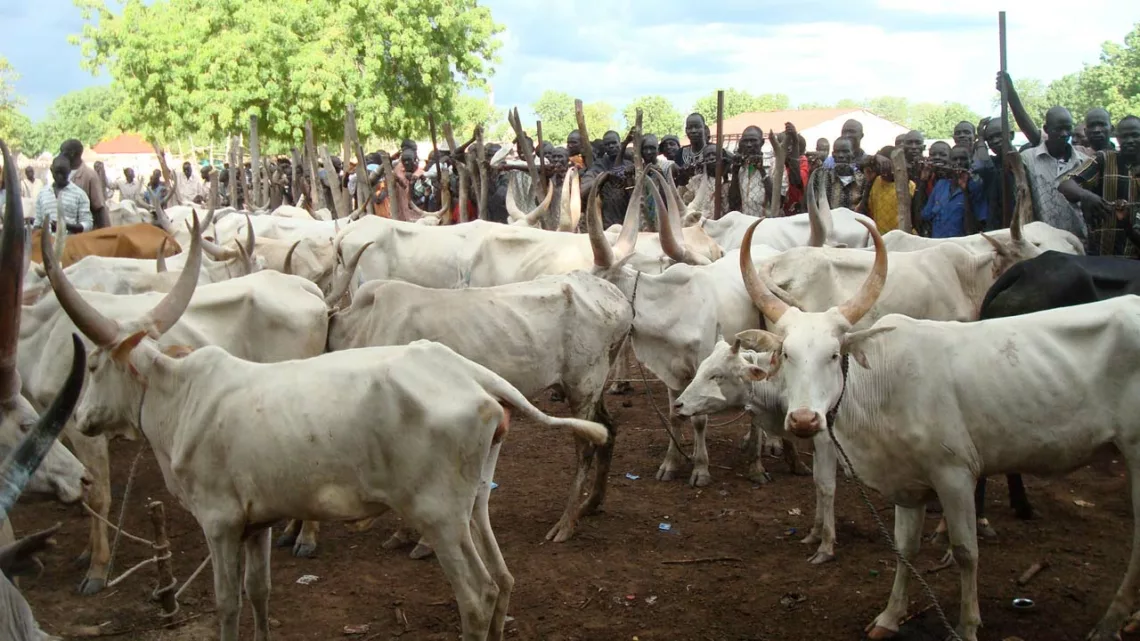Livestock farming is an essential component of Nigeria’s economy, providing employment opportunities for millions of people and contributing significantly to the country’s Gross Domestic Product (GDP).
The sector is a significant source of animal protein for Nigerians, with poultry, cattle, sheep, and goats being the primary sources. However, the rising cost of animal feed and the environmental impacts of conventional feed production have become significant challenges for the sector.
The production of conventional animal feed involves the use of expensive and unsustainable inputs which are often imported from other countries. The increasing cost of these inputs has made animal feed more expensive, reducing the profitability of livestock farming and the affordability of animal protein for consumers.
In addition, conventional animal feed production is associated with environmental impacts, including deforestation, water pollution, and are not also with global efforts towards reducing greenhouse gas emissions. The conversion of natural ecosystems to agricultural land for feed production results in the loss of biodiversity and contributes to climate change.
To address these challenges, there is a need to develop sustainable and affordable alternative animal feed sources for Nigeria’s livestock sector.
Some strategies suggestion by experts for building more sustainable, affordable and alternative animal feed include; encouragement of the production of locally available feed ingredients that can be used in animal feed production, including cassava, yam, sorghum, millet, and maize. This means encouraging the production of these crops can help reduce the cost of animal feed and improve the profitability of livestock farming.
Promotion of the use of agricultural by-products is another alternative to animal production. Many agricultural by-products, such as rice bran, wheat bran, and cassava peel, are currently underutilized and can be used as animal feed and can help reduce waste and provide affordable feed for livestock.
Other strategies to enable the adoption of alternative feed includes ; development of new feed ingredients through research and development of new feed ingredients, such as insect meal, algae, and seaweed, which can provide sustainable and affordable sources of protein and other nutrients for animal feed.
Improve feed conversion efficiency in another way to ensure sufficiency of feed. Improving the efficiency of feed conversion by livestock can help reduce the amount of feed needed for each animal, reducing the overall cost of animal feed and in another way, encouraging the use of feed additives such as enzymes, probiotics, and prebiotics can improve the digestibility of feed and enhance the health and growth of livestock, reducing the amount of feed needed and improving the efficiency of animal production.
Similarly, encouraging sustainable feed production practices, such as conservation agriculture, agroforestry, and organic farming, can help reduce the environmental impacts of animal feed production and support the development of sustainable agriculture.
Although to address the high cost of feed and make them more affordable to farmers in Nigeria, the federal Ministry of Agriculture and Rural Development recently called all actors across the various feed value chain to promote the utilisation of alternative feed ingredient.
This is because in Nigeria, animal feed remains a challenge to animal husbandry practices and where they are, they are not easily affordable by an average farmer.
Speaking at a capacity building on Utilisation of Alternative Feed Ingredients for Climate Smart Animal Feed Production in Gwagwalada, the permanent secretary, ministry of agriculture and rural development, Dr Ernest Umakhihe said alternative feed resources are cheaper and most available feedstuff for production.
According to him, some cheap feed resources include crop residues, rice, maize, groundnuts, cassava by-products, animal processing wastes, and brewery wastes etc.
The director, Department of Animal Husbandry Services, Winnie Lai-Solari, said the training of farmers on low cost feed production through utilisation of alternative feed ingredients is essential in increasing their profit and reducing the rate of competition between man and animal for conventional feed ingredients.
She noted that the training will acquaint participants with the relevant knowledge and skill that will uplift their businesses as feed millers and livestock farmers.
Overall, developing sustainable and affordable alternative animal feed sources for Nigeria’s livestock sector is critical to the long-term viability of the sector and the provision of affordable animal protein for Nigerians.
Adopting those strategies can help achieve this goal and it is essential to collaborate with stakeholders across the value chain, including farmers, feed producers, researchers, policymakers, to develop and implement these strategies successfully.





